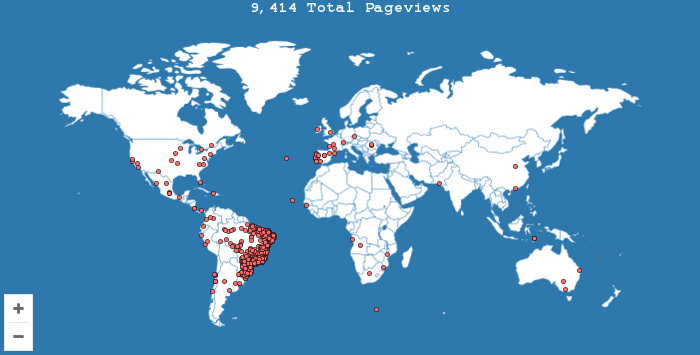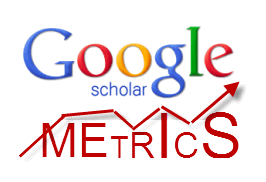Education for autists: analyzing the contributions of a continuing training course for Basic Education teachers
DOI:
https://doi.org/10.31496/rpd.v25i50.1660Keywords:
autismo, teaching, inclusionAbstract
Autism Spectrum Disorder has been very present in recent years, due to the increase in diagnoses and the search for studies that can help in the understanding and development of autistic people. As a result, inclusive pedagogical practices aimed at the education of autistic people are necessary, as there is a lack of inclusive training for teachers, who feel unprepared for this demand. Thus, reflections are brought about the contributions of a teacher training course aimed at inclusive education for autistic people. This course promoted the continued training of 30 teachers working in three public schools in the municipality of Senhor do Bonfim city, Bahia State, Brazil. The research involved the development, implementation, and evaluation of the course, investigating the perceptions of participating teachers about autism. Data on the prior knowledge of these participants was produced using a survey questionnaire, with five open questions, which was also answered after the course, to evaluate their final perceptions. These data were evaluated using content analysis. As a result, it was possible to perceive teachers' difficulties on how to carry out inclusion and the lack of teacher training on autism. Also, advances were seen in both the participants' understanding of the disorder and the education of people with autism, which shows the effectiveness of the course and indicates its potential for it to be taken to other groups of teachers.
Downloads
References
BARDlN, L. Análise de conteúdo. Lisboa: Edições 70, 1977, 225p.
BARBERINI, Y. K. A Escolarização do Autista no ensino Regular e Práticas Pedagógicas. Cadernos de Pós-Graduação em Distúrbios do Desenvolvimento, São Paulo, v. 16, n. 1, p. 46-55, 2016. Disponível em: https://www.mackenzie.br/fileadmin/ARQUIVOS/Public/6-pos-graduacao/upm-higienopolis/mestradodoutorado/disturbios_desenvolvimento/2016/ cadernos/1/A_ESCOLARIZACAO_DO_AUTISTA_NO_ENSINO_REGULAR_E_AS_ PRATICAS_PEDAGOGICAS.pdf. Acesso em: 10 nov. de 2020.
BRASIL. Lei n. 12.764, de 27 de dezembro de 2012. Institui a Política Nacional de Proteção dos Direitos da Pessoa com Transtorno do Espectro Autista; e altera o § 3o do art. 98 da Lei n. 8.112, de 11 de dezembro de 1990. Diário Oficial [da] República Federativa do Brasil, Brasília, DF, 28 dez. 2012. Disponível em: https://www.planalto.gov.br/ccivil_03/_ato2011-2014/2012/lei/l12764.htm. Acesso em: 26 de jun. 2023.
BRITO, B. G. F. de; SANTOS, D. S.; SANTOS, R. F. Seletividade alimentar em crianças com transtorno do espectro autista. Orientadora: Silvana Atayde. 2023. 32 f. monografia (Graduação em Nutrição) - Universidade São Judas Tadeu, Guarulhos, 2023. Disponível em: https://repositorio.animaeducacao.com.br/bitstream/ANIMA/35899/1/ Seletividade%20alimentar%20em%20crian%C3%A7as%20com%20transtorno %20do%20espectro%20autista.pdf. Acesso em: 13 out. 2023.
CARVALHO, S. da S.; SHAW, G. S. L. Relação entre família, escola e especialistas no processo de inclusão escolar de crianças autistas no município de Campo Formoso/BA. Cenas Educacionais, 4, e11868, 2021. Disponível em https://revistas.uneb.br/index.php/cenaseducacionais/article/view/11868, Acesso em: 2 out. 2023.
CUNHA, E. Autismo e inclusão: psicopedagogia e práticas educativas na escola e na família. 7. ed. Rio de Janeiro: Wak Editora, 2017. Disponível em: https://books.google.com.br/books?hl=ptBR&lr=&id=PrT1DwAAQBAJ&oi=fnd&pg=PT4&dq=autismo+ e+inclus%C3%A3o&ots=1K6YoLRSXw&sig=54mEx6eQYA4XTb-G808qacfD-B4#v=onepage&q=autismo%20e%20inclus%C3%A3o&f=false. Acesso em: 10 jan. 2023.
CHIDA, T. H. L.; SHAW, G. S. L. Família, escola e especialistas: o tripé que contribui para o desenvolvimento da criança autista. Horizontes, v. 40, n. 1, 2022. Disponível em https://revistahorizontes.usf.edu.br/horizontes/article/view/1393. Acesso em: 02 out. 2023.
FERREIRA, A. Novo Aurélio Século XXI: o dicionário de língua portuguesa/ Aurélio Buarque de Holanda Ferreira. 3.ed. totalmente revista e ampliada. Rio de janeiro: Nova Fronteira, 1999.
KHOURY, L. P. et al. Manejo comportamental de crianças com Transtornos do Espectro do Autismo em condição de inclusão escolar: guia de orientação a professores [livro eletrônico]. São Paulo: Memnon, 2014. 1.004,23 Kb. Disponível em: https://portal.educacao.rs.gov.br/Portals/1/Files/3155.pdf. Acesso em: 5 mar. 2023
LISBOA, D. de O; ALVES, M. de M. C.; LISBOA, D. de O. Autismo e Inclusão Escolar. IV Colóquio Internacional Educação e Contemporaneidade ISSN 1982-3657. Disponível em: http://educonse.com.br/2010/eixo_11/e11-25a.pdf. Acesso em: 5 jan. 2023.
MAGALHÃES, S. J. C. MORAES, S. C. CRUZ, M. G. J.; ROTTA, T. N.; OHLWEILLER, L. RIESGO, dos S. R. Transtorno da aprendizagem abordagem neurobiológica e multidisciplinar. 2. ed. Porto Alegre: Artmed, 2016. Disponível em: https://books.google.com.br/books?id=CdiGCgAAQBAJ&printsec=frontcover&hl =pt-BR.
Acesso em: 10 nov. 2020.
MANTOAN, M. T. E.; PRIETO, R. G. Inclusão escolar: pontos e contrapontos. São Paulo: Summus, 2006.
MATIAS, H. B. R.; PROBST, M. A criança com transtorno do espectro autista, a escola e o professor: algumas reflexões. Revista Profissão Docente, Uberaba, MG, v. 18, n. 38, p. 158–170, 2018. DOI: 10.31496/rpd.v18i38.1190. Disponível em: https://revistas.uniube.br/index.php/rpd/article/view/1190. Acesso em: 21 dez. 2022.
OLIVEIRA, F. L. Autismo e inclusão escolar: os desafios da inclusão do aluno autista. Revista Educação Pública, v. 20, n. 34, 8 de setembro de 2020. Disponível em: https://educacaopublica.cecierj.edu.br/artigos/20/34/joseph-autismo-e-inclusao-escolar-os-desafios-da-inclusao-do-aluno-autista. Acesso em: 20 de fev. 2023.
ROSA, M. de P. A et al. O professor e a inclusão do educando autista na escola comum do ensino regular: os desafios na prática pedagógica. Memorial TCC - Caderno da Graduação - 2017. Disponível em: https://cadernotcc.fae.emnuvens.com.br/cadernotcc/article/download/212/105. Acesso em: 28 dez. 2020.
SAMPAIO, T. M. L. Práticas inclusivas de alunos com TEA: principais dificuldades na voz do professor e mediador. Revista online de Política e Gestão Educacional, Araraquara, v.21, n. esp. 2, p. 1031-1047, nov. 2017. Disponível em: https://periodicos.fclar.unesp.br/rpge/article/view/10386. Acesso em: 18 dez 2021.
SILVA, B. B. A.; GAIATO, B. M.; REVELES, T. L. Mundo singular: entenda o autismo. Rio de Janeiro: Fontanar, 2012.
SOARES, D. Vitoria; SOARES, A. N. Formação inicial docente x educação inclusiva: desafios e possibilidades. IENCI Investigação em Ensino de ciências, v. 26, n. 2, p. 113-126, 2021. Disponível em: https://www.if.ufrgs.br/cref/ojs/index.php/ienci/article/view/2397/pdf. Acesso em: 30 dez. 2020.
SILVA, J. da S.; WOLTER, L. R.; MORAIS, J. C. P. de. As compreensões de professores da educação infantil sobre o trabalho pedagógico com crianças com transtorno do espectro autista (TEA) nas escolas municipais de educação infantil de Jaguarão. Nova revista amazônica, v. X, n. 3, dez. 2022. Disponível em: https://periodicos.ufpa.br/index.php/nra/article/view/13590/9430. Acesso em: 03 out. 2022.
SHAW, G. S. L.; BOFF, A. P. História do autismo e as políticas inclusivas atuais. In: SHAW, G. S. L. Ensinar ciências a todos: sequências didáticas interdisciplinares e inclusivas. Santo Ângelo Brasil: Metrics, 2022. p. (39-56).
VERAS, P. R. M.; CASTRO, R. M. M. de. A inclusão de alunos autistas: desafios e perspectivas. In: SEMANA DE INTEGRAÇÃO, 7. 2018. Anais [...]. ISSN: 2359-7038 299 Inhumas: UEG, 2018, p. 299-308.
Downloads
Published
How to Cite
Issue
Section
License
Submitted texts approved by the Editorial Board of Revista Profissão Docente will be published, and their authors may use them for future publications, provided that the original edition is properly cited (title, Revista Profissão Docente, volume, issue, year of publication, and page numbers of the referenced text). All articles published in this journal are the sole responsibility of their authors. Revista Profissão Docente and Universidade de Uberaba assume no legal responsibility for their content.
















